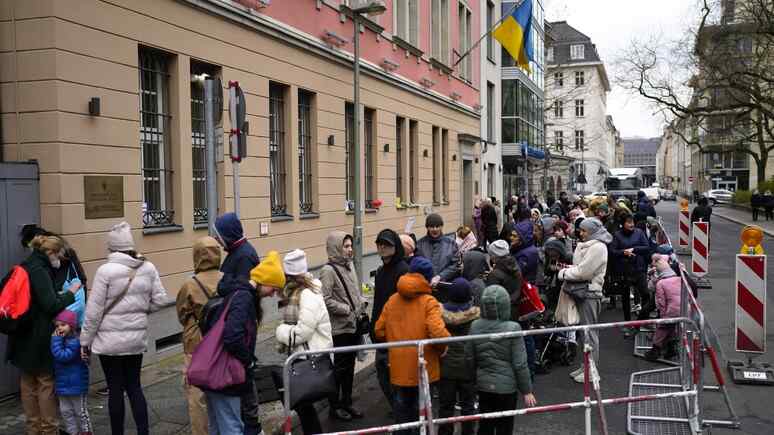Refugees from Ukraine are immediately entitled to social benefits in Germany. Now this privilege for them want to be cancelled in accordance with German law, reports Bild. The Ministry of Labour is going to take measures to ensure that Ukrainians fill the gaps in the labour market, which means that soon they will be obliged to work and earn their own living. Now only 18 per cent of Ukrainian refugees are employed in Germany.
If everything goes the way the federal government wants it to, more Ukrainian refugees in Germany will be obliged to work and earn their own money in the future, the German tabloid Bild writes.
Concrete plans on this issue are to be presented to the cabinet on Wednesday. A number of measures are being agreed, including with the Federal Employment Agency, which runs three-quarters of the country’s 400 job centres.
Chancellor Olaf Scholz, Vice Chancellor Robert Habeck and Finance Minister Christian Lindner reportedly already discussed it on Tuesday.
The plan is not to make any major legislative changes, focusing only on administrative agreements. A “large number” of Ukrainians in Germany are due to complete language and integration courses in the near future. The Federal Ministry of Labour responsible for this has stated, “We must make use of their potential.” This means that Ukrainians have to fill the gaps in the labour market, Bild explains.
At the moment, only 18 per cent of Ukrainian refugees between the ages of 18 and 64 have a job. Such data was obtained by the German Institute for Economic Research (DIW). For comparison: in the UK this figure is 50%, in Denmark – 53%, and in the Netherlands – even 70%. These are the results of a study conducted by the Friedrich Ebert Foundation.
Moreover, out of 18% of working Ukrainians, only 39% are employed full-time, 37% part-time and 18% part-time. Another 7% are undergoing training or internships.
According to the latest data, there are about 687,000 people registered in employment centres dealing with Ukrainian refugees, of whom about 480,000 are able-bodied adults.
The publication sees possible reasons for the low employment rate of refugees in Germany in bureaucracy, which makes it difficult to recognise professional qualifications, the language barrier and the hope of some Ukrainians that the war will soon be over, because of which they did not take jobs. However, there is another reason: many Ukrainians found welfare benefits sufficient.
As Bild explains, in Germany, people who leave Ukraine are immediately entitled to welfare. However, “this is not an unconditional basic income,” stresses Martin Rosemann, the SPD’s representative for labour market policy. According to him, there are obligations that must be honoured in return. We should try to place people faster, offer language courses more often in addition to the work process, he said.
“Refugees from Ukraine who come to Germany for the first time should no longer receive benefits directly. Instead, they should receive benefits again in the future in accordance with the Asylum Seekers’ Benefits Act,” urged Reinhard Sager, president of the Association of German Municipalities.
Due to censorship and blocking of all media and alternative views, stay tuned to our Telegram channel

